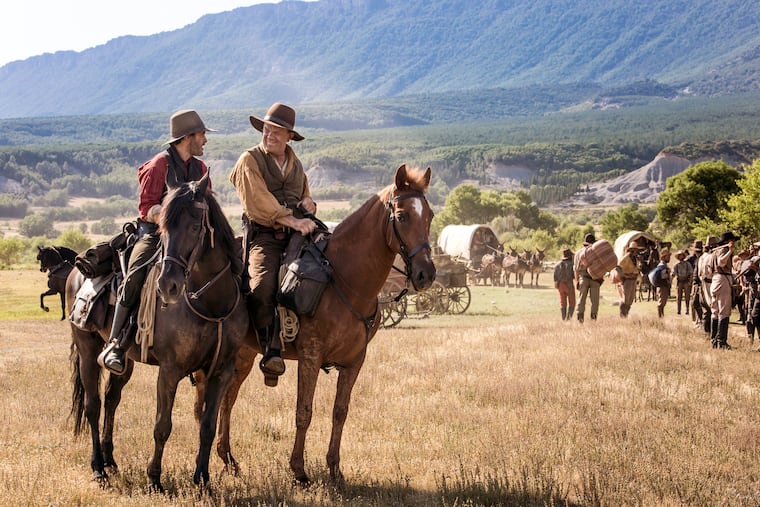‘The Sisters Brothers’: A new take on the Western with fun chemistry between Joaquin Phoenix and John C. Reilly
John C. Reilly and Joaquin Phoenix are guns for hire in the Western 'The Sisters Brothers.'

The Sisters Brothers is a western that begins with a nighttime shootout at a remote ranch, photographed from a distance, with muzzle flashes giving us brief glimpses of the action.
Most of the effective shooting is done by the legendarily merciless Eli (John C. Reilly) and Charlie (Joaquin Phoenix) Sisters, hired guns who settle scores and debts on behalf of a frontier feudal lord known only as the Commodore (Rutger Hauer) .
We don't get much detail about the background leading to this violent confrontation (there'll be more bloodshed), but it culminates with a burning barn and with Eli expressing distress at the way things got out of control.
"How many did we kill, seven?" he asks as they walk away, and we don't know whether he means shot-up people or burned-up horses.
There is more of this perverse, bleak comedy to come as the two men set out, on the Commodore's orders, to cross the Oregon territory in search of a chemist named Hermann Warm (Riz Ahmed) who purports to have invented a new gold-mining technology. There is a Pinkerton type named Morris (Jake Gyllenhaal) also on the man's trail, and the movie follows the violent crisscrossing of the paths and destinies of the men involved.
The Sisters Brothers is directed by Jacques Audiard (A Prophet), a Frenchman who shows a cinema buff's understanding of what is essential and elemental about the old-fashioned American western and its idea of the West — a place where foundational ideas of America are established, where folks go to find, or to build, a better life.
Hermann, for instance, wants to use his gold-mining money to found a utopian society built on the exercise of pure democracy. I won't say where he plans to build it (the punchline is too good), but it reminded me of the last line of Raising Arizona ("Maybe it was Utah.").
Anyway, Audiard isn't making an old-fashioned Western, but a new-fashioned one. His mischievous movie operates with the modern, jaded understanding that these utopias failed to develop, not even in San Francisco (sorry, Silicon Valley), where the trail-hardened Sisters brothers spend a few days considering the miracle of the flush toilet, and manage to spend a few days without killing anybody (the movie has a shapeless, episodic narrative that hurts it a bit). Or each other.
Among the movie's conflicts is the growing strain between Eli and Charlie. Eli is in love and eyes retirement, but Charlie is bound to his profession by rage and by drink. All is sorted when the characters converge on the mining camp where Hermann is testing his invention.
Does his chemistry work? In the end, it matters less than the chemistry between actors, and its especially fun to watch Reilly and Phoenix work together.
Phoenix has a way of drawing most of the camera's energy toward him, but Reilly, in his own mysterious and quiet way, can hold his own with anyone, be it Ricky Bobby or King Kong.
MOVIES
The Sisters Brothers
Directed by Jacques Audiard. With John C. Reilly, Joaquin Phoenix, Riz Ahmed, Jake Gyllenhaal, Rutger Hauer. Distributed by Mirror.
Run time: 2 hours, 1 min.
Parents guide: R (language, violence)
Playing at: Ritz Five